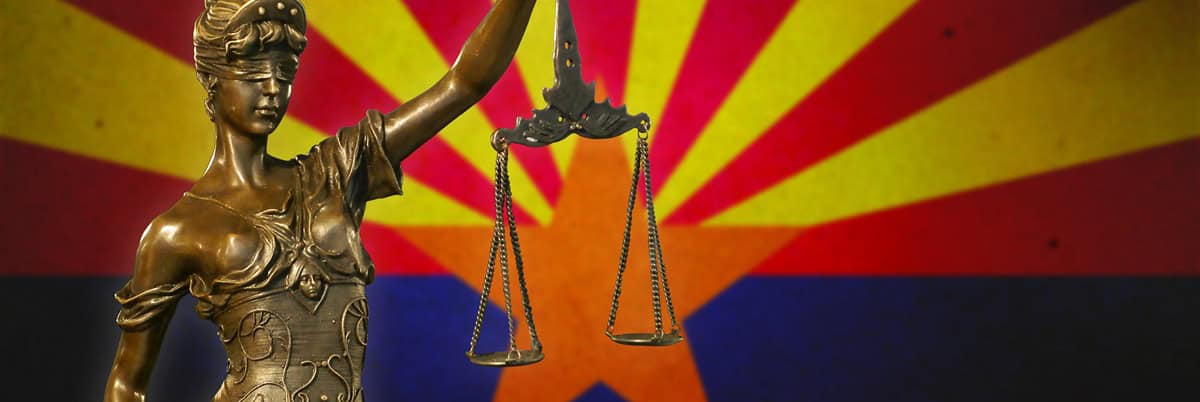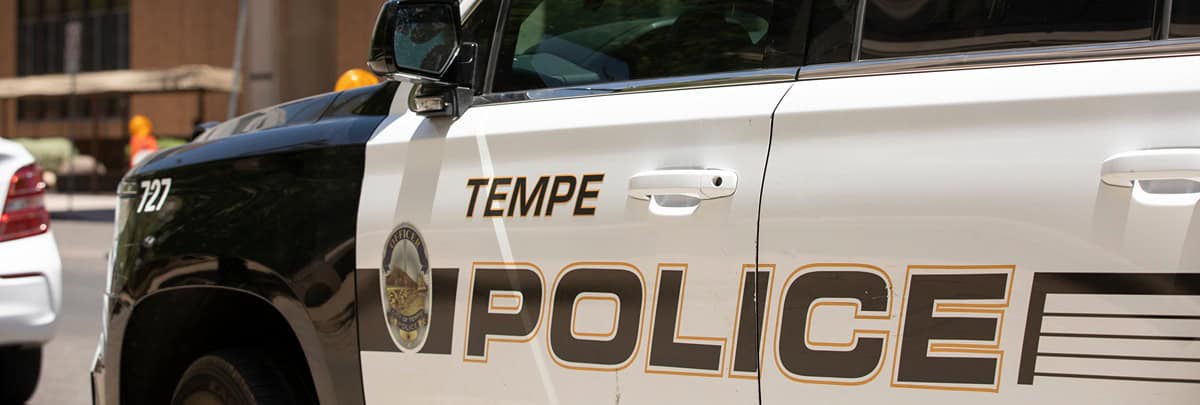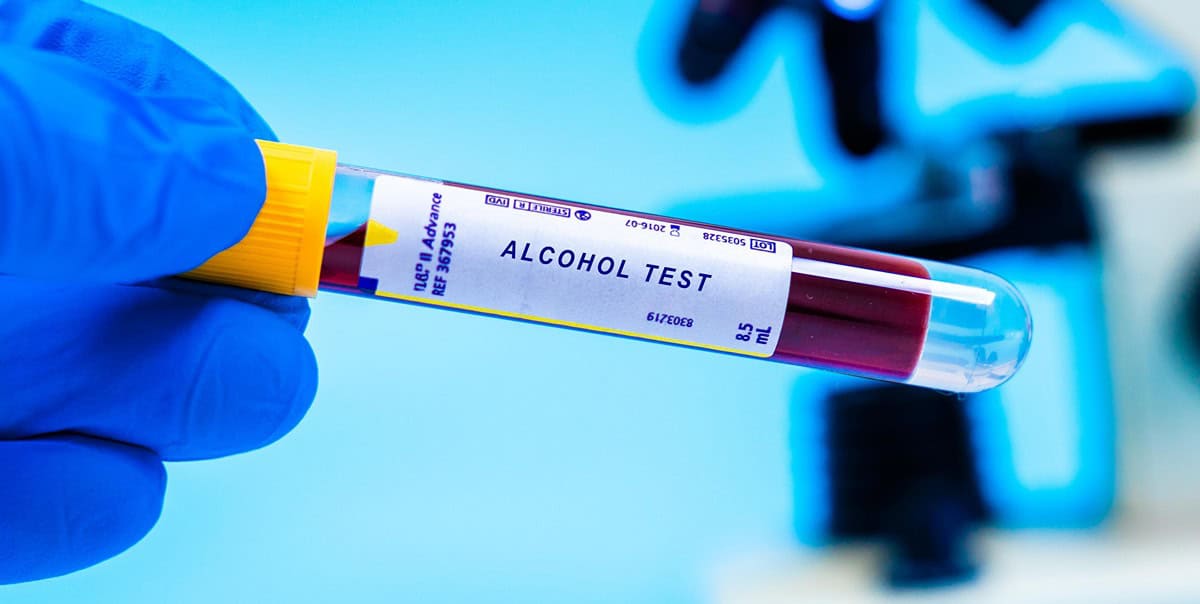Spring Training in Arizona is a highly anticipated event for Major League Baseball fans. People from across the country—and even outside the United States—travel to the Phoenix metropolitan area to watch their favorite teams prepare for the upcoming season. The combination of warm weather, relaxed vacation vibes, and an exciting sports atmosphere often leads to large crowds at games, restaurants, and bars. Unfortunately, these joyful gatherings sometimes come with a downside: an increase in certain criminal charges.
When fans gather for Spring Training, alcohol flows freely in and around the ballparks. The party-like environment can lead to impaired judgment, conflicts, and other risky behaviors that might not arise under normal circumstances.
Law enforcement agencies throughout Maricopa County, Pima County, and Pinal County routinely plan for these seasonal spikes in activity. Officers stay alert for potential issues such as disorderly behavior, public intoxication, and other offenses common to large public gatherings.
This article will cover the following subtopics:
- The Spring Training Culture in Arizona
- Common Criminal Charges During Spring Training
- Arizona Laws and ARS Statutes
- Potential Penalties for These Charges
- Real-World Examples of Crimes During Spring Training
- What Happens if You Are Charged and Live in Another State?
- Defense Strategies to Consider
- FAQs About Spring Training Criminal Charges
- Important Things to Remember
- How Shah Law Firm Can Help
This article takes a close look at the various crimes that often occur during Spring Training, explaining the relevant Arizona Revised Statutes (ARS), possible penalties, and what can happen if someone is charged while visiting from another state. You will also learn about practical defense tactics and how Shah Law Firm can assist.

The Spring Training Culture in Arizona
Arizona’s Cactus League is a major draw for fans who want an up-close look at teams and players before the regular season begins. Temperatures in the Phoenix Valley are generally mild during February and March, making it an ideal place to watch baseball.
Whether it is a weekday afternoon or a weekend evening, the stands often fill with fans cheering, socializing, and—quite often—enjoying alcoholic beverages. This laid-back environment can lead to higher rates of intoxication as people let their guard down on vacation. Many fans also travel from cold-weather states such as Illinois, Wisconsin, and Minnesota to support teams like the Chicago Cubs or the Milwaukee Brewers. Thousands of hotel rooms, restaurants, and bars are packed, creating a festival-like setting.
Although the majority of visitors come to relax and have a good time, some attendees may become involved in heated debates over sports rivalries or misunderstandings. These simple disagreements can escalate, especially when alcohol is involved.
Stadium Locations Around the Phoenix Valley
The Cactus League encompasses multiple facilities around the Phoenix area, each hosting one or more MLB teams during Spring Training. Here is a quick look at some of the stadiums and their home teams:
- Salt River Fields at Talking Stick (Scottsdale): Arizona Diamondbacks, Colorado Rockies
- Sloan Park (Mesa): Chicago Cubs
- Hohokam Stadium (Mesa): Oakland A’s
- Camelback Ranch (Glendale): Los Angeles Dodgers, Chicago White Sox
- Peoria Sports Complex (Peoria): San Diego Padres, Seattle Mariners
- Surprise Stadium (Surprise): Texas Rangers, Kansas City Royals
- Tempe Diablo Stadium (Tempe): Los Angeles Angels
- American Family Fields of Phoenix (Phoenix): Milwaukee Brewers
- Goodyear Ballpark (Goodyear): Cleveland Guardians, Cincinnati Reds
- Scottsdale Stadium (Scottsdale): San Francisco Giants
These stadiums are known for their fan-friendly design, opportunities for player interactions, and plentiful options for food and beverages. However, large numbers of spectators, flowing alcohol, and long days in the sun can result in the perfect storm for misbehavior.
Why Criminal Charges Often Rise
Local law enforcement agencies anticipate an increase in disruptive behaviors during Spring Training. Officers typically conduct DUI patrols and watch for any activities that might threaten public safety. People who have had too much to drink may engage in actions they would normally avoid: shouting insults, physically clashing with others, urinating in public, or stumbling into restricted areas.
Additionally, some fans may not be familiar with Arizona’s stricter DUI enforcement or local ordinances that govern behavior at large events. The result is a surge in arrests for assault, disorderly conduct, public intoxication, and other offenses during this busy season. By understanding the environment and being aware of the risks, visitors and residents alike can better protect themselves from legal trouble.
Common Criminal Charges During Spring Training
⑴ Public Intoxication
Public intoxication itself is not a specific crime under Arizona state law, but intoxicated behavior can trigger charges of disorderly conduct (ARS §13-2904) or a local ordinance violation. Cities like Phoenix and Mesa have local rules that address intoxicated individuals who disrupt the peace or pose a safety hazard. While having a few drinks is part of the Spring Training fun for many, going too far and becoming rowdy can lead to legal consequences.
⑵ Assault
Assault charges (ARS §13-1203) frequently stem from physical confrontations or threats. In the high-energy baseball environment, fans occasionally get into arguments that escalate. Assault in Arizona can be charged as a misdemeanor or felony, depending on factors like the severity of injuries, the involvement of weapons, or whether the assault occurred in a public area such as a stadium. Classifications can range from Class 1 misdemeanors (relatively minor) to Class 3 felonies (more serious).
⑶ Urinating in Public
When restrooms are crowded or people have been drinking heavily, some make the poor decision to relieve themselves in a parking lot, alley, or behind a concession stand. While this might seem like a minor mistake, the implications are more serious under Arizona law. Urinating in public often leads to charges under disorderly conduct (ARS §13-2904), and in extreme cases, prosecutors may file indecent exposure charges (ARS §13-1402) if someone’s intimate areas are visible in a manner likely to offend others.
⑷ Driving Under the Influence (DUI)
DUI charges are common throughout the year in Arizona, but the rates often climb during significant events like Spring Training. The Arizona Department of Public Safety (DPS) and local police departments are particularly vigilant during this season. The legal limit is a 0.08% blood alcohol concentration (BAC) for most drivers, 0.04% for commercial drivers, and a zero-tolerance policy for drivers under 21. Enhanced DUIs apply if the driver’s BAC is 0.15% or higher, leading to more stringent penalties.
⑸ Disorderly Conduct
Disorderly conduct (ARS §13-2904) is a catch-all charge that covers many forms of disruptive or reckless behavior. Shouting vulgarities, provoking fights, blocking pedestrian or vehicle traffic, and engaging in violent scuffles can all result in disorderly conduct. Whether it’s a misdemeanor or felony depends on the specifics, such as whether the individual used a weapon or knowingly disrupted an event.
⑹ Trespassing
Trespassing during Spring Training can happen if a person enters a restricted area without proper credentials or refuses to leave a stadium after being asked. Arizona recognizes three degrees of trespassing:
- Criminal Trespassing in the Third Degree (ARS §13-1502) – Entering or remaining unlawfully on someone’s property, a typical misdemeanor.
- Criminal Trespassing in the Second Degree (ARS §13-1503) – Unlawfully entering or remaining in a nonresidential structure or fenced commercial yard.
- Criminal Trespassing in the First Degree (ARS §13-1504) – Entering or remaining in a residential structure or in a critical public service facility, or if the offense involves trespassing with a weapon. This charge can be a felony.
⑺ Minor in Possession of Alcohol
It is not uncommon for underage visitors to attend Spring Training games with friends. Some attempt to purchase or consume alcohol, which is illegal under ARS §4-244(9). A Minor in Possession charge can lead to a suspended driver’s license and other penalties. The law extends to minors who attempt to buy alcohol, consume it in public, or simply hold an alcoholic beverage container.

Arizona Laws and ARS Statutes
Arizona law is known for being strict on offenses related to alcohol and public safety. Here are some of the key statutes relevant during Spring Training:
- Disorderly Conduct (ARS §13-2904):
- Broadly covers reckless or disruptive behaviors that disturb the peace.
- It can be charged as a Class 1 misdemeanor or higher if weapons are involved.
- Assault (ARS §13-1203):
- Covers causing physical injury, placing another person in reasonable fear of injury, or knowingly touching someone with intent to injure or provoke.
- Penalties vary from misdemeanor to felony levels.
- DUI (ARS §28-1381, §28-1382, §28-1383):
- Addresses impaired driving due to alcohol or drugs.
- Includes basic DUI, Extreme DUI, and Aggravated DUI, each carrying escalating penalties.
- Criminal Trespassing (ARS §13-1502 to §13-1504):
- Ranges from entering a property unlawfully to entering a residence or critical facility with malicious intent.
- Classification depends on the circumstances and severity.
- Indecent Exposure (ARS §13-1402):
- Involves exposing genitals or other intimate parts in a manner likely to offend or alarm.
- It can escalate to a felony if the individual is a repeat offender or if a minor is present.
- Minor in Possession (ARS §4-244(9)):
- Makes it illegal for someone under 21 to buy, possess, or consume alcohol.
- Drivers under 21 also face a zero-tolerance policy for any alcohol in their system.
Anyone who faces charges under one of these statutes should be aware of the potential for serious penalties, which can include fines, jail time, probation, and a permanent criminal record. Penalties become steeper if there are prior convictions or aggravating factors such as severe injury, property damage, or involvement of minors.
Potential Penalties for These Charges
Penalties vary widely based on the offense, level of intoxication, prior criminal history, and other factors. Below is a brief explanation, followed by a visual table for quick reference. Keep in mind that judges have some discretion, and specific sentencing can differ from case to case.
- Misdemeanor Charges often carry up to six months in jail and fines ranging from a few hundred to a few thousand dollars.
- Felony Charges can lead to more than a year in prison, substantial fines, and long-term probation or parole obligations.
- Driving Offenses can result in driver’s license suspensions or revocations, mandatory ignition interlock devices, and higher auto insurance rates.
| Charge | Possible Classification | Typical Penalties | Relevant ARS |
| Disorderly Conduct | Class 1 Misdemeanor or higher | – Up to 6 months jail – Fines up to $2,500 – Possible probation |
ARS §13-2904 |
| Assault | Misdemeanor to Felony | – Jail or prison time – Fines and restitution – Probation or parole |
ARS §13-1203 |
| DUI | Class 1 Misdemeanor to Felony | – Fines up to $4,600 – Mandatory jail (min. 1 day) – License suspension – Ignition interlock |
ARS §28-1381, §28-1382, §28-1383 |
| Indecent Exposure | Class 1 Misdemeanor to Felony | – Up to 6 months jail (misdemeanor) – Possible prison time (felony) – Sex offender registration (if extreme) |
ARS §13-1402 |
| Trespassing | Class 3 Misdemeanor to Felony | – Jail or prison – Fines – Probation |
ARS §13-1502 to §13-1504 |
| Minor in Possession | Misdemeanor | – Fines – Possible license suspension – Community service |
ARS §4-244(9) |
Repeat offenders can expect harsher penalties, including longer jail or prison terms and higher fines.
In cases where severe injuries or property damage occurs, charges may escalate, and judges often impose stricter sentences. The stakes are even higher if minors are involved or if someone commits an offense in a designated safe area.

Real-World Examples of Crimes During Spring Training
▶ Example 1: A Heated Argument Escalates
Two fans—a local resident and an out-of-state visitor—begin arguing at a stadium in Scottsdale. The disagreement starts as trash talk about the teams but grows more intense once friends get involved. Both individuals have consumed several beers.
One person pushes the other, leading to a scuffle. Security intervenes, but police are called due to the injuries. The local resident is charged with misdemeanor assault under ARS §13-1203. If convicted, this person could face jail, probation, or fines.
The out-of-state visitor was released after being treated for minor injuries but may be involved as a witness in court proceedings.
▶ Example 2: Post-Game DUI in Tempe
A group of fans decides to leave Tempe Diablo Stadium and head out for more drinks. One person, assuming they feel “fine,” offers to drive. An officer spots the car weaving and pulls it over. The driver’s blood alcohol concentration (BAC) measures 0.12%. Under ARS §28-1381, the driver is charged with a misdemeanor DUI.
The group scrambles to find a ride home while the driver is booked and spends the night in jail. Even a first-time DUI conviction in Arizona carries mandatory jail time, license suspension, and substantial fines.
These examples show the wide range of possible outcomes. Some cases might lead to minimal legal consequences if handled correctly, while others involve more serious penalties, especially if aggravating factors are present. In each instance, having a strong defense attorney, such as Arja Shah, can make a significant difference in the outcome.
What Happens if You Are Charged and Live in Another State?
Many people who visit Arizona for Spring Training do not reside here. This raises important questions about how to handle a criminal case if you live elsewhere. A short trip can become complicated if you face charges:
- Court Appearances:
Missing a scheduled court date can lead to a warrant for your arrest. Some individuals attempt to manage their cases by traveling back to Arizona, while others may hire local counsel to appear on their behalf under certain circumstances. - Travel Logistics:
If your presence is required in court, you must account for travel expenses and schedule disruptions. Failure to address the charges can escalate the situation, leading to additional legal consequences, such as an arrest warrant that could follow you to your home state. - Consequences of Fleeing Charges:
Attempting to ignore charges will not make them disappear. Arizona can request extradition if the crime is serious, or the outstanding warrant can come up if you are pulled over for a minor traffic violation in your home state. - Hiring an Arizona Defense Attorney:
It is typically better to secure a local attorney who knows Arizona law, the court system, and the prosecutors handling Spring Training cases. An experienced Arizona lawyer can request that you attend only essential hearings and might negotiate plea deals or alternative sentencing in your absence.
Addressing these issues promptly often reduces stress and the likelihood of worse penalties. Proactive steps include contacting a defense attorney as soon as you learn about the charges, asking questions about possible remote court appearances, and making sure you do not miss any mandated deadlines.
Defense Strategies to Consider
Defending against criminal charges related to Spring Training requires a thorough approach. An experienced defense attorney will examine the evidence, analyze police reports, and look into potential procedural errors. Below are five common defense strategies:
- Illegal Search or Seizure
- If officers stopped or searched you without a valid reason, any evidence obtained might be suppressed.
- Challenging the legality of the initial encounter or traffic stop can weaken the prosecution’s case.
- Challenging the BAC Results
- In DUI cases, the accuracy of breathalyzers or blood tests can be questioned.
- Mistakes in calibration, improper testing techniques, or issues with sample handling can cast doubt on the results.
- Lack of Evidence or Witness Reliability
- In assault or disorderly conduct cases, conflicting eyewitness accounts or missing surveillance footage can be grounds for reasonable doubt.
- If the state lacks clear evidence, the charges may be reduced or dismissed.
- Entrapment or Coercion
- Although less common in Spring Training contexts, entrapment arguments might apply if undercover officers or security personnel actively induced the crime.
- Coercion means you had no real choice but to commit the alleged offense under immediate threat or harm.
- Plea Negotiations for Reduced Charges
- In many scenarios, your attorney may negotiate for lesser charges or alternative sentencing.
- This might mean pleading to a lesser offense, taking classes (like DUI education), or performing community service in exchange for reduced penalties.
It is crucial to realize that an effective defense is seldom one-size-fits-all. Every case has unique nuances—evidence, witness statements, police conduct, and your own background. That is why having a well-versed attorney like Arja Shah of the Shah Law Firm can make such a difference.
FAQs About Spring Training Criminal Charges
- Will I go to jail for a simple public intoxication offense?
Arizona does not have a statewide law for public intoxication, but being disruptive can lead to disorderly conduct charges. Jail time is possible, but the penalty can depend on factors such as your previous record and the severity of the disturbance. An attorney may help you seek an alternative outcome. - How serious is a Minor in Possession charge?
A Minor in Possession (MIP) charge can result in fines, community service, and a license suspension. The court also considers factors like whether the minor appeared intoxicated or caused any harm. Early legal counsel can be especially helpful in negotiating reduced penalties for underage individuals. - Can I handle my Arizona criminal charges without traveling back if I live in another state?
Depending on the nature of the offense, it might be possible. You can authorize your Arizona attorney to appear on your behalf in some instances, though certain hearings or serious charges may still require your presence. - What if I refused a breathalyzer test during a DUI stop?
Arizona has an implied consent law, meaning that refusing a breath or blood test can lead to a 12-month license suspension. This suspension stands even if you are later cleared of DUI. Contact an attorney to explore possible defenses or ways to regain driving privileges sooner. - Are sentencing alternatives like diversion programs or probation available?
Some misdemeanor offenses may be eligible for diversion programs, which allow a charge to be dismissed upon completion of classes or community service. Probation is also an option for many first-time offenders. A knowledgeable lawyer can evaluate your eligibility and advocate on your behalf.
Important Things to Remember
- Arizona Laws Are Strict: Many offenses that seem minor elsewhere can carry steep penalties here, especially alcohol-related charges.
- Court Dates Must Not Be Ignored: Missing a court date in Arizona can lead to a bench warrant, even for out-of-state residents.
- Legal Counsel Is Critical: Hiring an experienced defense attorney is one of the best ways to protect your future if you face charges.
- Possible Long-Term Consequences: Convictions can affect your job opportunities, driving privileges, and overall record.
- Being Proactive Helps: Taking steps to address charges immediately can save time and money and reduce stress in the long run.
How Shah Law Firm Can Help

Arja has handled more than 3,000 criminal cases, offering highly individualized service because she understands what is truly at stake when you are accused of a crime. She knows how local prosecutors and courts operate, which can be a decisive factor in resolving your case favorably.
Whether you live in Arizona or traveled here for Spring Training, the firm can guide you through each step with personalized attention. That includes assessing whether remote court appearances are possible, exploring plea bargains that keep you from traveling multiple times, or preparing a strong trial strategy if needed.
Shah Law Firm also firmly believes that you are not just another case number. Our legal team works closely with you to ease concerns, arrange favorable outcomes, and help you understand how each decision affects your future. This approach goes beyond legal representation; it is about building trust and ensuring you feel heard and protected.
Contact Shah Law Firm today for a free one-on-one consultation by calling (602) 560-7408 or filling out the online contact form. Early intervention can make all the difference between a harmful conviction and a more positive outcome to your situation.











